
~ Soda Springs Discussion Guide ~
Soda Springs: Love, Sex, and Civil Rights is a story, not an essay or political screed. It’s meant to be enjoyed, to entertain. But it also sheds a bit of light on an era and people caught up in that era, and raises issues we still wrestle with today. The following questions are meant for discussion in a reading group, with students in a classroom, or simply for readers who want to dig deeper into the book.
Is Soda Springs a civil rights story or a coming-of-age story?
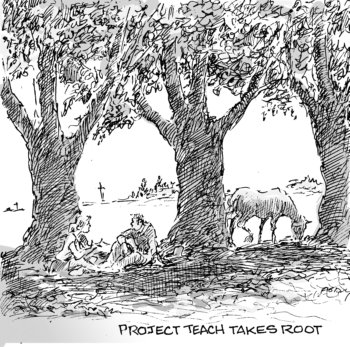
Rick is inspired by Martin Luther King’s civil rights message. But often, it is sex that motivates him — not civil rights. He’s a college senior, a virgin, and haunted by his failed encounters in the past. After his escapades with Priscilla and Ginny, Concha teaches him the difference between sex and love.
- How do sex and civil rights affect the chain of events in this story? Would the story work if it were only one or the other?
- How does Priscilla affect Rick’s coming of age? What does she teach Rick? Is she a cougar or a predator? Why?
- How does Ginny’s support of “Project Teach” influence her romantic feelings for Rick, and his for her?
- Does sharing a cause spark sexual desires?
- Why would Concha egg Rick on given her anger over his attempt to force sex on her before he left for college? To get his help at Esperanza? To test his mettle?
- Why was she still so angry about his apology? By the story’s end, is Rick worthy of her love?
- Given that Soda Springs is more divided now that ever, do they have a chance of making a life together?
What role do whites have in the struggle for civil rights?
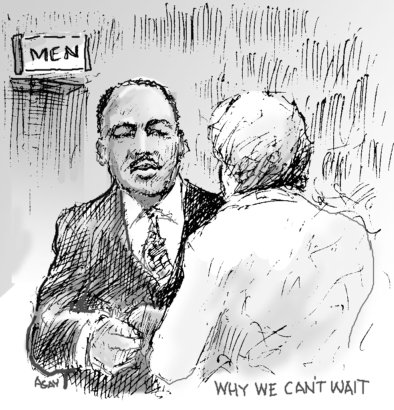
In “Letter from Birmingham Jail,” Martin Luther King argues that white liberals are more harmful to the Negro cause than the Klu Klux Klan. In the novel, Rick involves himself in King’s Birmingham, then joins the Mexican struggle in Soda Springs.
- Is Rick’s “Project Teach” a viable way for whites to aid the Negro and Hispanic causes?
- What are the pluses and minuses of emphasizing Negro civil rights in Soda Springs?
- How else could Rick have conducted his project in Soda Springs?
- Is Concha right in refusing to help Rick deal with the angry Methodist church members?
- After the failed boycott and strike, what can Rick do now to help the community?
How do we effectively combat racism, discrimination, and poverty?
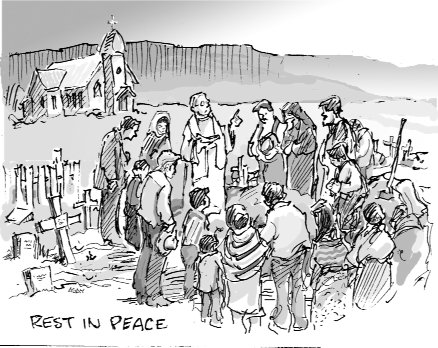
Mexicans in Soda Springs have been discriminated against for decades. They hold no political offices or government jobs and own no businesses. The batos picket; white Soda Springs labels it a “riot.” Mexicans boycott local stores and mount a strike; the town crushes both efforts. The local newspaper fans the flames with one-sided reporting.
- What did Lupe and her supporters do right? What should they not have done?
- What else could the barrio do to overcome poverty and discrimination?
- Are the batos justified in protesting the murder of Tom s?
- What are the federal and state governments’ roles in dealing with injustice? The churches’ role?
- How can a powerless community counteract a one-sided press?
- How do we deal with our own racism, e.g. Rick’s recognition that he dated Concha in high school because he thought a Mexican would be an easy lay?
What does Soda Springs tell us about today’s virulent rhetoric on “illegal immigrants”?
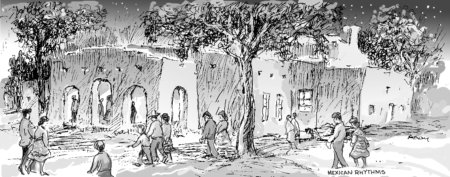
With Arizona leading the charge, the cry to seal America’s borders strikes many as a new round of ethnic prejudice, particularly against Mexicans and Mexican-Americans. It isn’t new we’ve heard it before but in the past few years the rhetoric has become increasingly strident and nasty.
- In the Soda Springs barrio, some residents trace their American roots back to the 1600s. Given today’s rhetoric, how do you think the Soda Springs barrio would react to the Arizona law? Is it justified?
- How can we lower the heat on the debate and deal civilly with our nation’s immigration policies?
- How do immigrants contribute to our society? How do they harm it?
- How does this increasingly strident rhetoric compare with past discrimination against ethnic minorities in the U.S.?
How do we effect social change in American communities?
Several characters set out to change Soda Springs: Rick hopes Ginny will help him sell Dr. King’s message to the town; Bob and Flor enlist Rick and Ginny to rebuild the youth group; Lupe and Concha seek to redress a history of discrimination. Yet, the efforts to combat social injustice get all mixed up with the characters’ personal actions and external forces far removed from issues of civil rights.
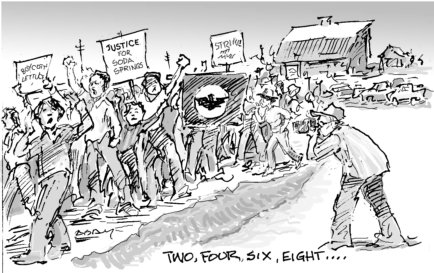
- How are their hopes thwarted?
- How do their personal lives affect their efforts at change?
- Would Rick and Ginny have been more effective with Project Teach if they hadn’t have gotten involved sexually? If only they had been more discrete?
- Could Lupe have been more effective if she weren’t so confrontational?
- Should Flor have taken on the youth group earlier, rather than leave Bobby on his own?
- How do issues and actions that seem irrelevant to civil rights prevent or enable social change in Soda Springs?
- How could they best bring about change in Soda Springs?
- If you lived in Soda Springs, what would you do differently?
Outside resources (a government grant) made it possible to build La Casa de Esperanza, and to mount Lupe’s summer project. In Birmingham, many outside forces aided in the “Children’s Crusade” including Martin Luther King and the Southern Christian Leadership Conference. Some would argue it takes actors both inside and outside a community to effect significant change.
- Do you agree or disagree? Why?
- What other outside forces do we see at work in Soda Springs? What are their roles? Effects?
- What about the college student picketers do they have a useful role in local change efforts? What?
- Are there others that Lupe and Concha could call upon for help?
- What about Mayor Avery? What outside forces do local establishments call upon to preserve their authority?
How does history play into the story’s outcomes?
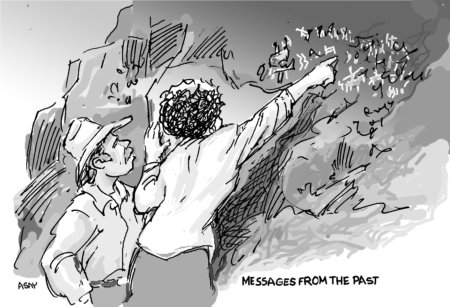
Soda Springs is not a tabula rasa: Rick comes home to a town with a history of ongoing conflicts, about which he has little knowledge. Some conflicts affect Project Teach much more than, Rick’s own doings, e.g., the feud between Buck and Odell on the church board.
- What historical events play key roles in Rick’s summer?
- Lupe’s? Concha’s? Ginny Sue’s? Flor’s and Bob’s? How?
- Could they have been more effective if they had a better understanding of local history? How?
- Does history condemn the the Mexican barrio to a future of discrimination and poverty?
What are the costs (and rewards) of a teenage summer romance?
Ginny is 18, with a full summer ahead before her first year at Texas A & M. Then Rick, a college man, shows up. When she rescues his ill-fated project, love blossoms; they believe they’re soul mates. She gives herself to him; he’s her first. But their adventures including wild sex scandalize the town.
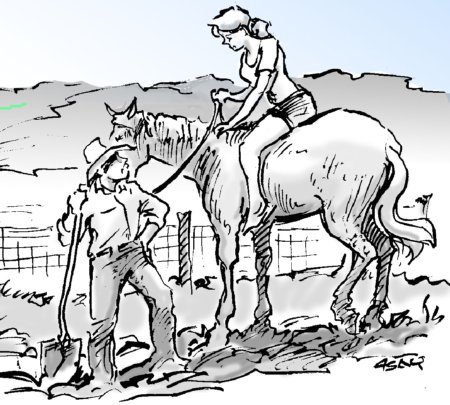
- Rick and Ginny Sue hit it off right from the first moment. How did their personal histories affect their quick romance?
- For example: as neighbors?
- As Soda Springs High School students?
- Rick’s “affair” with Priscilla? Ginny Sue’s dating Jeff? Rick’s dating Concha?
- Is the quick romance between Rick and Ginny realistic? Or merely another example of the old clich‚: charismatic stud blows into town and wows the local farm girl?
- Is Ginny too young for Rick?
- Does he take advantage of her?
- Rick and Ginny aren’t dummies; why are they so reckless?
- Are they driven by hormones? By peer pressures to be “with it”?
- What does Ginny learn about herself after she erroneously accuses Rick of fathering “that Mexican girl’s snot-nose kid”?
- Overall, is Ginny’s summer a terrible mistake . . . or a grand adventure?
- At times, Ginny Sue and Rick engage in fairly explicit sex, as do Rick and Mrs. McPherson. How does the graphic sex contribute to the story? Detract from it?
- Do euphemisms for sexual acts cause teenagers to underplay the possibly negative impacts of sex on their lives? Should we shield teens from explicit sexual terms?
- Do current attitudes toward pre-marital sex differ from those of the Sixties? How?
Are there particular dangers or rewards in cross-cultural dating?
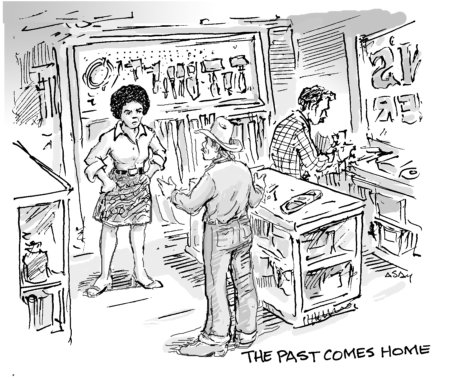
Rick is white, and Concha, Mexican-American. Their dating in high school caused a scandal . . . simply because of community traditions.
- What is the attitude toward white-Mexican dating is taboo in Soda Springs, as whites see it? As Mexicans see it?
- How would Ginny have treated Rick if she thought he fathered a baby with Vicky Matthews, rather than with Concha? Would that have affected the story?
- Is cross-cultural dating more complicated or troublesome than “sticking with one’s own kind”?
- If Rick is attracted to Concha because she’s Mexican, is that racism?
How do we respond to rape?
Flor’s attempt to revive the youth group leads to her proposal that Odell back off and let Ginny run the youth program under Flor’s and Odell’s guidance. Her request gives Odell his opening to turn a simple planning meeting into pre-meditated rape.
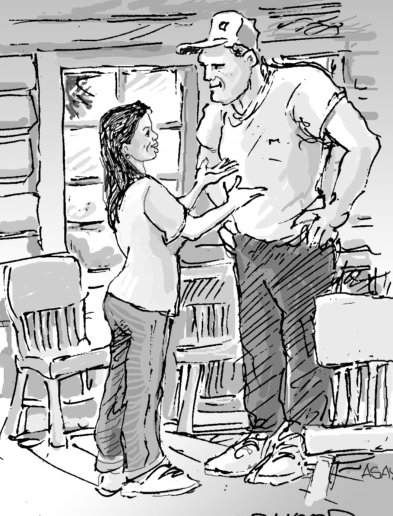
- How could Flor have recruited Odell’s help without leading him on?
- What red flags did she see, and why do you think she ignored them? Does she share responsibility for her rape?
- When she so thoroughly cleaned the house, she destroyed the evidence needed to prove Odell raped her can we “blame” a woman for wanting to scrub away every trace of a rape? How can she file charges if she has destroyed the evidence?
- Realistically, can Flor fight back . . . in a town that would believe the coach’s word over hers?
- How do we defeat lies, threats, and bullies?
- Should Flor and Bob move away, or stay and fight? Do they have other options?
Buck Bennett takes the law into his own hands: he beats up Odell, forces him to resign, and to give restitution both to Flor and to the high school girl he raped.
- Is Buck justified given that neither Flor nor Rev. Hardwick took action against Odell?
- What else should Reverend have done in response to his wife’s rape?
- What do you think will happen when Flor reports the rape to Chief Zeigler?
- Is it enough that Buck forces Odell to resign his job, pay restitution, and retire to his wife’s farm? Should Odell go to prison? Do you think he will?
How do the perils of farming affect the story’s outcome?
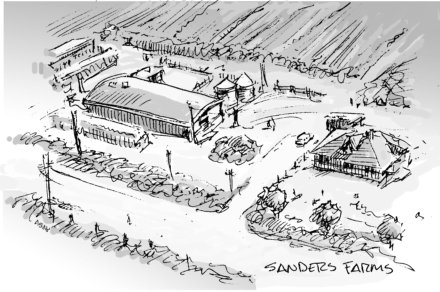
Behind the story, but only hinted at, is Soda Springs’ economic decline. Farmers feel under siege from corporate farms, huge debts, high cost of machinery and supplies, but low crop prices, and mounting government regulation. Mostly what we see through Rick’s eyes is that farming is hard work.
- What signs do we see that farmers are in trouble?
- How do the area’s economic troubles affect white-Mexican relations? Pops and Rick? The Bennetts? The Hardwicks?
- How might Rick have behaved differently if he understood the overall economic pressures the town faces?
- If Rick stays in Soda Springs, how can he build a tenable working relationship with Pops?
- How will he be able to reconcile with white Soda Springs both friends and foes?
- How will he relate to the barrio when they strike the potato farmers?

Sign Up for News Flashes
Please keep in touch! And to be notified for events around A Rendezvous to Remember and other news from us, please sign up. Our promise? We won’t sell your address to anyone or clutter up your inbox with junk.




